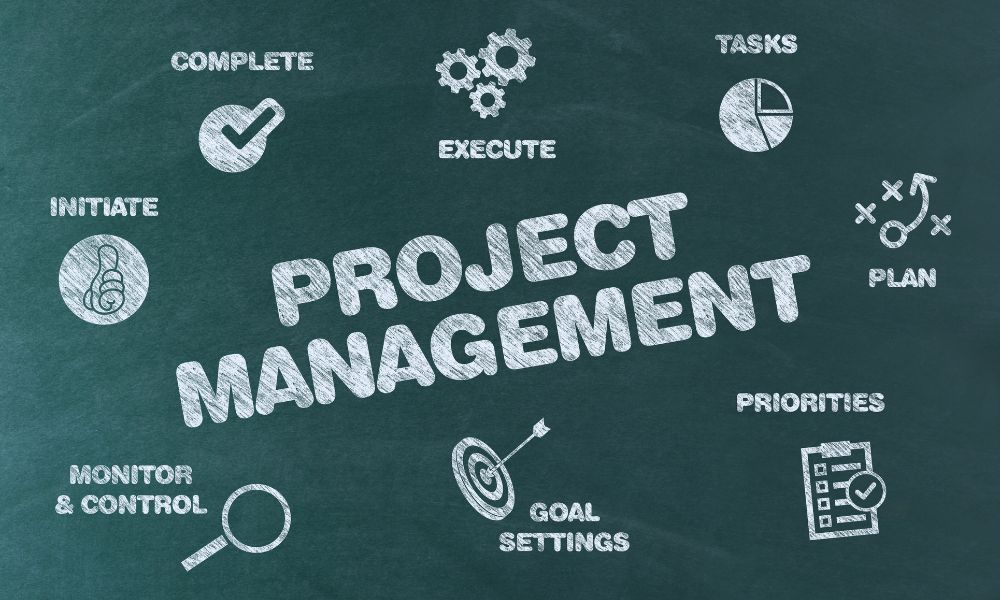Implementing effective project management frameworks can significantly enhance supply chain resilience. This blog explores five practical ways to boost supply chain resilience through the strategic use of project management frameworks.
Effective supply chain management requires robust project management frameworks that can adapt to dynamic environments. By integrating these frameworks into broader business strategies, organisations can achieve seamless coordination across departments, suppliers, and customers.
This integration fosters a holistic approach to business growth, where supply chain resilience becomes a cornerstone of overall business success.
Choosing a Project Management Framework

Choosing the right project management framework is essential. Consider factors like organisational culture, project complexity, and industry norms.
Options include Agile, Waterfall, Lean, and Hybrid methodologies. Evaluate each framework based on its compatibility with supply chain operations and overall business goals.
Benefits of Project Management Frameworks

Implementing a project management framework offers numerous benefits:
1. Enhanced Efficiency
Clear processes streamline workflows.
2. Improved Communication
Stakeholders are on the same page.
3. Risk Mitigation
Issues are identified and resolved promptly.
4. Adaptability
Frameworks like Agile enable quick adjustments to changing circumstances.
Best Practices for Project Management Frameworks

To maximise the benefits of a project management framework:
1. Stakeholder Engagement
Involve key stakeholders from the outset.
2. Clear Goals and Objectives
Define project scope and outcomes clearly.
3. Regular Monitoring and Reporting
Track progress and address deviations promptly.
4. Continuous Improvement
Adapt and refine the framework based on lessons learned.
Project Management Frameworks vs. Methodologies

Differentiate between frameworks and methodologies. While a framework provides structure (e.g., Agile), methodologies (e.g., Scrum) are specific approaches within a framework data governance. Understanding this distinction is crucial for effective implementation.
Key Elements of a Project Management Framework

Key elements of a robust project management framework include:
1. Roles and Responsibilities
Clearly defined roles ensure accountability.
2. Project Lifecycle Phases
Structured phases guide project progression.
3. Communication Channels
Open lines of communication foster collaboration.
4. Feedback Mechanisms
Regular feedback loops facilitate continuous improvement.
Boosting supply chain resilience through effective project management frameworks yields several key benefits for organisations:
1. Risk Mitigation
Enhanced resilience allows businesses to proactively identify and mitigate risks within their supply chains.
By implementing robust project management practices, organisations can anticipate disruptions and develop contingency plans, reducing the impact of unexpected events such as supplier delays, market fluctuations, or natural disasters.
2. Improved Adaptability
Resilient supply chains are flexible and adaptable to changing circumstances. Project management frameworks like Agile enable rapid adjustments to evolving customer demands, regulatory requirements, or technological advancements.
This adaptability ensures that businesses can maintain operational efficiency even in turbulent times.
3. Enhanced Efficiency and Cost Savings
Efficient supply chain management driven by project management frameworks leads to optimised processes and reduced operational costs.
By streamlining workflows, eliminating inefficiencies, and minimising downtime, organisations can achieve significant cost savings while delivering products and services more competitively.
4. Stakeholder Collaboration and Communication
Clear project management frameworks facilitate effective communication and collaboration among supply chain stakeholders.
When all parties are aligned on project objectives, timelines, and responsibilities, coordination becomes smoother, leading to improved relationships with suppliers, distributors, and customers.
5. Customer Satisfaction and Brand Reputation
A resilient supply chain ensures consistent delivery of goods and services, enhancing customer satisfaction and loyalty.
By reliably meeting customer expectations, organisations can strengthen their brand reputation and gain a competitive edge in the market.
6. Strategic Decision-making
Project management frameworks provide actionable insights through data governance and business intelligence.
By leveraging data analytics within supply chain operations, organisations can make informed, strategic decisions that optimise inventory management, procurement strategies, and resource allocation.
7. Continuous Improvement
Implementing project management frameworks fosters a culture of continuous improvement within supply chain management.
Through regular monitoring, evaluation, and adaptation of processes, organisations can identify opportunities for growth and innovation, driving long-term success and sustainability.
Conclusion
In conclusion, leveraging project management frameworks is instrumental in enhancing supply chain resilience. By adopting these frameworks, businesses can optimise processes, minimise risks, and adapt swiftly to changing market conditions.
Choosing the right framework, following best practices, and understanding the nuances between frameworks and methodologies are essential steps toward achieving a resilient supply chain.Implementing project management frameworks aligns with broader business integration strategies and promotes growth consultancy.
It facilitates data governance and supports business intelligence consultancy efforts, ensuring holistic management approaches. Embrace project management frameworks as a cornerstone of supply chain resilience, enabling organisations to thrive in today’s competitive landscape.























